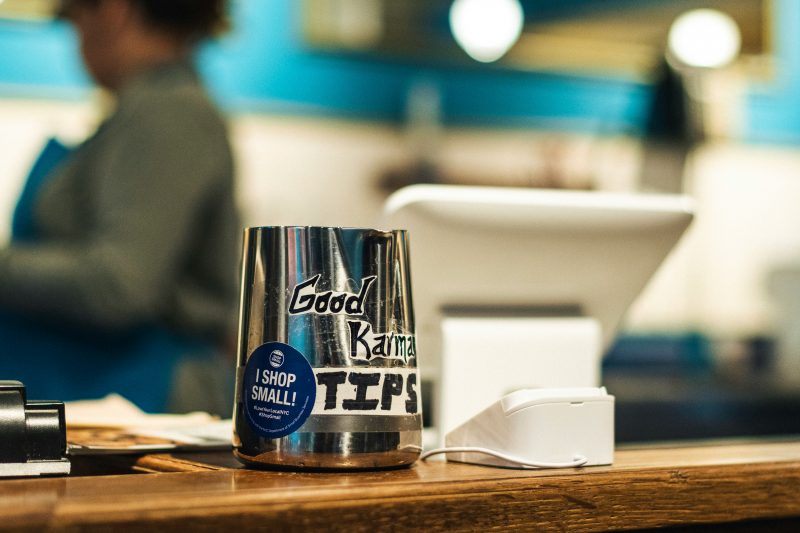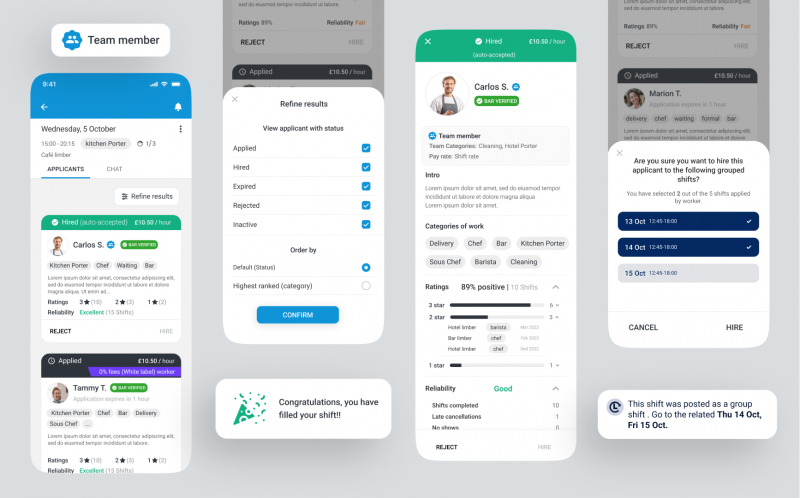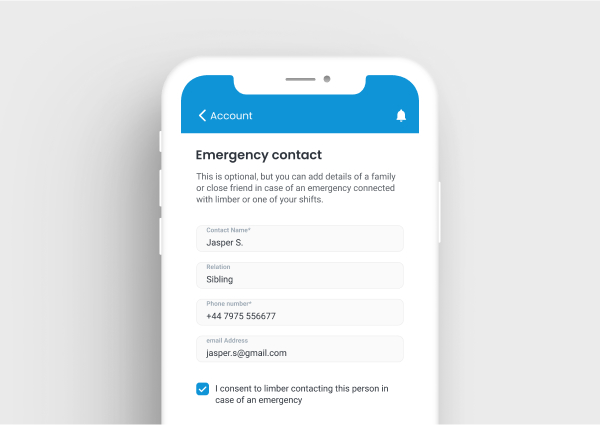Why self care should always be at the top of your priority list
Working on your own terms has endless benefits, no boss to answer to, no formal attire and no squabbles over the office microwave at lunchtime to name just a few. However like anything, working flexibly presents it’s own set of challenges that can take their toll if not properly managed. With figures suggesting that over half the population will be working freelance, or part of the gig economy by 2022, it’s important to be aware of simple ways to stay of top of our mental health while working flexibly, so you can feel good while doing the things you love.1)Try to be sociable
Working alone is great. Peace and quiet, no ‘can i borrow you’ for a second (which we all know means a two hour meeting), and you can even make money from the comfort of your slippers and dressing gown – cup of tea in hand. However, if you’re used to a busy, and densely populated office environment, working alone can require quite the adjustment. Health professionals warn that loneliness can make us feel depressed, ruin our sleep quality and effect our productivity, so just because you’re no longer working as part of a team, doesn’t mean that it should be always be a solo experience.
Try teaming up with other freelancers or friends that work from home one or two days a week. Just because you’re not doing the same thing (you might even be in totally different industries) having a pal there to bounce off, share ideas with and chill out with when the work is done can be really refreshing, so don’t hesitate to ask.
Alternatively, co – working spaces are perfect for a little bit of socialisation and stimulation, with a simple google you’ll be surprised how many co- working spaces are near to you. Some are free to use and others require memberships or a fixed fee depending on what you require (meeting rooms for example are often slightly more expensive). Co working spaces can be really buzzy and exciting places, and, with people from all industries and backgrounds choosing to work there, you never know who you might be sharing a desk with.
There’s also some handy apps such as bumblebizz, which allows you connect with other like minded people who may be looking for a buddy to collaborate, and could probably also recommend appropriate work spaces for you.
2) Utilise social media positively
The online world can get pretty intense and today’s technology means that wherever we are, and whatever we’re doing, we’re always connected. Work emails and outstanding tasks are but a few clicks away and social media means we’re constantly bombarded with the gloss and glamour of celebrities and influencers. But how can you use our phones to positively impact our mental health?
Make an effort to only follow only positive Instagram accounts – social media can so often become a negative place, feeding a culture of comparison and the ‘I’m not good enough’ mentality. Your new motto should be ‘inspiration not comparison’. Constantly comparing your life with others is tempting when our self esteem is low, but unsurprisingly this can be really damaging in the long run. Slashie expert and author of the multi-hyphen method Emma Gannon advises to avoid ‘hate following’ and suggests that social media should be a place that motivates and inspires you.
3) Figure out your routine
43% of people named the option to have a flexible working day as the reason they wanted to change the way they work. However, not having to show up anywhere at a set time (rejoice) means that is can be super tempting to sleep in and start work post brunch. While this might work perfectly for some and can be an amazing treat, if it becomes the norm, it can lead to stress later in the day! We’re definitely not advocating the strict 9-5, but try to figure out the hours that you’re most productive. If you do fancy keeping a tight schedule, developing little habits can help you.
Plan your week in advance, sit down one night a week and plan what you want to do, where you’ll be working, the resources you need and anyone you need to reach out to. While the nature of the freelance or Slashie life means that you don’t always know what’s around the corner, making a note of simple things like this gives your week some structure, and in turn you’re likely to be more productive, and happier. You could even use apps such as Trello, Monday and Wunderlist to help you clearly plan your time and keep your to do list in one convenient place.
Part of planning your week also includes not taking on too much work, as Emma Gannon explains, “You’re a multiphypenate – not a multitasker”, “Hard work doesn’t mean working all the hours God sends you, in fact, a good in depth thirty minute session with no distractions (no iphone, twitter, nothing) is actually incredibly valuable and get a lot done.” So the key advice is to work smart, not hard, trying to spin too many plates can result in incomplete tasks and work finished to a standard you’re unhappy with, working in manageable chunks will give you the best chance or producing some you can be proud of.
4) Separate work from home
When your office is your living room, it can be really difficult to leave your work alone at the end of the day. But there certain things you can do to improve the distinction. If you carry out most of your work at home, designate one area if your house to do so – whether you feel most productive at your desk, the kitchen table or even your bed (whatever works for you – there’s no judgement here) choose somewhere and stick to it, and that way it will be easier to separate ‘work time’ and ‘chill time’.
The way you communicate with clients and members of your network can also make a difference. If possible, don’t just use message and email to talk about work, try downloading Slack and invite clients and members of your network to communicate with you through that instead, having a designated area just for work chat means you can pay attention to it when necessary and ignore it when you need some time away.
5) Solve your creative ruts
Getting stuck in a creative rut can feel really disheartening – you’ve set a number of hours to get something done and it’s just not happening. Rather than giving up and feeling as if you’ve failed, find alternative ways that you can be productive. Try listening to a podcast that talks about what you’re doing, or watching a documentary or a You Tube video you can learn from to get your creative juices flowing. Think about if you’ve come across similar problems or ruts before, what did you do to get around it and continue being productive? Don’t let a creative rut get you down. This is also where you inspirational and motivational Instagram accounts can come in handy!
6) Keep it moving
Everyone knows that exercising is great for our mental health, so make sure you plan time for it. Obviously the gym or an exercise class is great, but If the weather is bad or you simply rather stay in the comfort of your own home, there are plenty of youtube tutorials that will guide you through a work out, whether you’re looking for a chilled out yoga session or a quick twenty minute hiit session that will get your heart racing and pump you up for the day, you’ll be able to find something you can do. Alternatively, why not try something that’s both sociable and good for you by joining a team sport – this way you can make friends and stay healthy.
7) Practice meditation and mindfulness
Mediation and mindfulness can sound daunting if you’ve never done it before, but it’s actually really simple. All you need is a quiet, relaxing space – free from distractions. Try downloading an apps like headspace, which can provide guides and walkthroughs to help you through your meditation. We promise you’ll feel refreshed and settled after!
8) Positive feedback
Working flexibly means that you’ll no longer receive positive feedback from your boss or co workers, which can in turn have an impact on your confidence and self-worth. Not having coworkers to chat about work and share problem with can result in you become introverted, so make a point to share what you’re working on with friends and family, any positive feedback and encouragement will help to keep you motivated and discussing what you’re working on will take some of the weight off your shoulders.
It’s easy to shrug off positive feedback and focus on the negatives, so when a client is happy with something you’ve produced (which should be the majority of the time) make a note of it! It might sound silly but little positive affirmations like this are sometimes exactly what you need when you’re feeling unmotivated or doubting yourself.
9) Engage in something stimulating
When you love your work, it’s easy to prioritise it above everything else, but it goes without saying that this is quickly becomes difficult to maintain. Last year a study published by statista found that nearly a quarter of employees in full time jobs felt burned out and exhausted at the end of the working week. The excitement of a brand new freelance career can encourage you to jump in headfirst, but make sure you specifically plan for downtime.
Try having mini digital detoxes by removing yourself from technology all together and doing something that’s engaging enough to fully distract you from your work. This includes activities like drawing, gardening, cleaning, painting, building furniture – pretty much anything non digital. Getting stuck into something physically and mentally stimulating helps you to completely remove your mind from any work related thoughts and worries, and you can feel satisfied and accomplished once you’re done. Try it, you’ll find you feel far more productive than spending an hour mindlessly scrolling on your phone, and it’s a great technique to refocus your attention and look at your work with fresh eyes.
10) Practice general self care
The good old classics like a bubble bath or a movie with friends never go a miss, don’t let activities like this slide to the bottom of your to do list – even when your really love what you do, it’s important to take breaks away from it and just relax.
*Disclaimer* While these suggestions may help you to keep on top or your well being, if you’re struggling with your mental health we advise you always speak to a health professional as a priority. You can also access advice at www.mind.org.uk or text ‘Shout’ to 85258 to chat to someone from the ‘give us a shout’ helpline.




